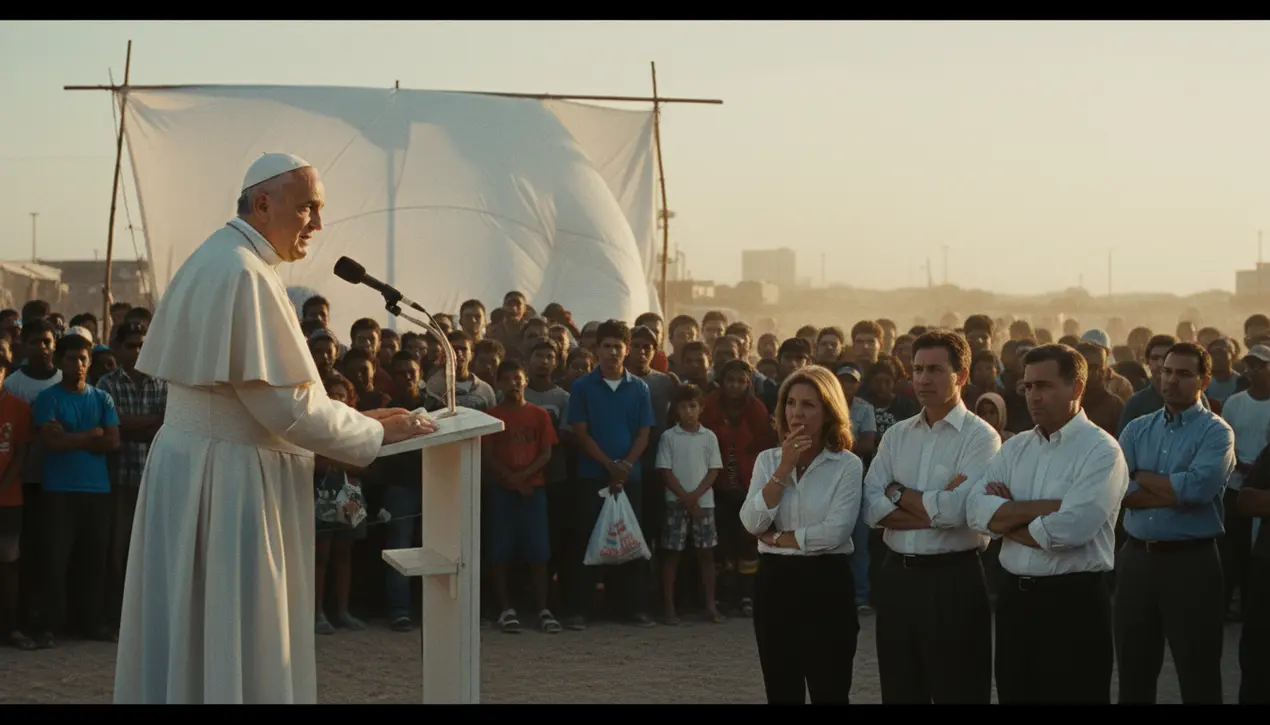
Politicshuman rightsRefugees and Migration
What Americans Don't Get About the First US Pope
AN
Anna Wright
1 day ago7 min read
The election of Pope Leo XIV, the first American pontiff in the two-millennia history of the Catholic Church, has created a fascinating cultural and political paradox that many in his homeland seem unprepared to navigate. Hailing from Chicago, this new pope speaks with the direct, unaccented English of the American Midwest, and his voice carries an immediacy that breaks through the usual filters of translation and interpretation that have long distanced previous papacies from the American consciousness.When he speaks about immigration, framing the treatment of migrants as a fundamental pro-life issue, or when he critiques the dehumanizing potential of artificial intelligence in Hollywood, his words land not as distant theological pronouncements but as pointed commentary on the very fabric of American society. This has led to a peculiar form of cognitive dissonance, particularly among a certain segment of conservative American Catholics who, during the papacy of Francis, could comfortably dismiss challenging teachings as the missteps of a 'benighted Argentine' who simply didn't understand the complexities of the United States.That convenient excuse has evaporated. The tension is not, as some liberal commentators might wish-cast, a simple case of the pope being 'anti-MAGA.' Rather, it is a profound clash between a political ideology built on nationalism and a religious doctrine founded on the universal dignity of the human person. Catholic social teaching, with its roots in encyclicals like Pope Leo XIII's *Rerum Novarum*, has for over a century provided a consistent framework that prioritizes the poor, the migrant, and the worker.Pope Leo XIV’s namesake confronted the Industrial Revolution; this Leo is confronting the technological and informational revolution, asking not just if AI can be used ethically, but how it might fundamentally alter our understanding of what it means to be human. His focus on 'below-the-line' workers in the film industry is a direct continuation of this tradition, applying age-old principles of workers' rights to the new frontier of digital labor.The real story here is not about partisan politics, but about a pastor speaking in a language his flock understands perfectly, forcing a moment of reckoning. For American bishops and laity who had hoped for a pope who would align more neatly with their political project, the reality of an American pope may be the most challenging development of all—because they can no longer blame the messenger's foreignness, but must instead contend with the uncomfortable familiarity of the message itself.
#Pope Leo XIV
#Catholic Church
#immigration
#US politics
#AI ethics
#Catholic social teaching
#Trump administration
#editorial picks news
Stay Informed. Act Smarter.
Get weekly highlights, major headlines, and expert insights — then put your knowledge to work in our live prediction markets.
Related News
Comments
Loading comments...
© 2025 Outpoll Service LTD. All rights reserved.